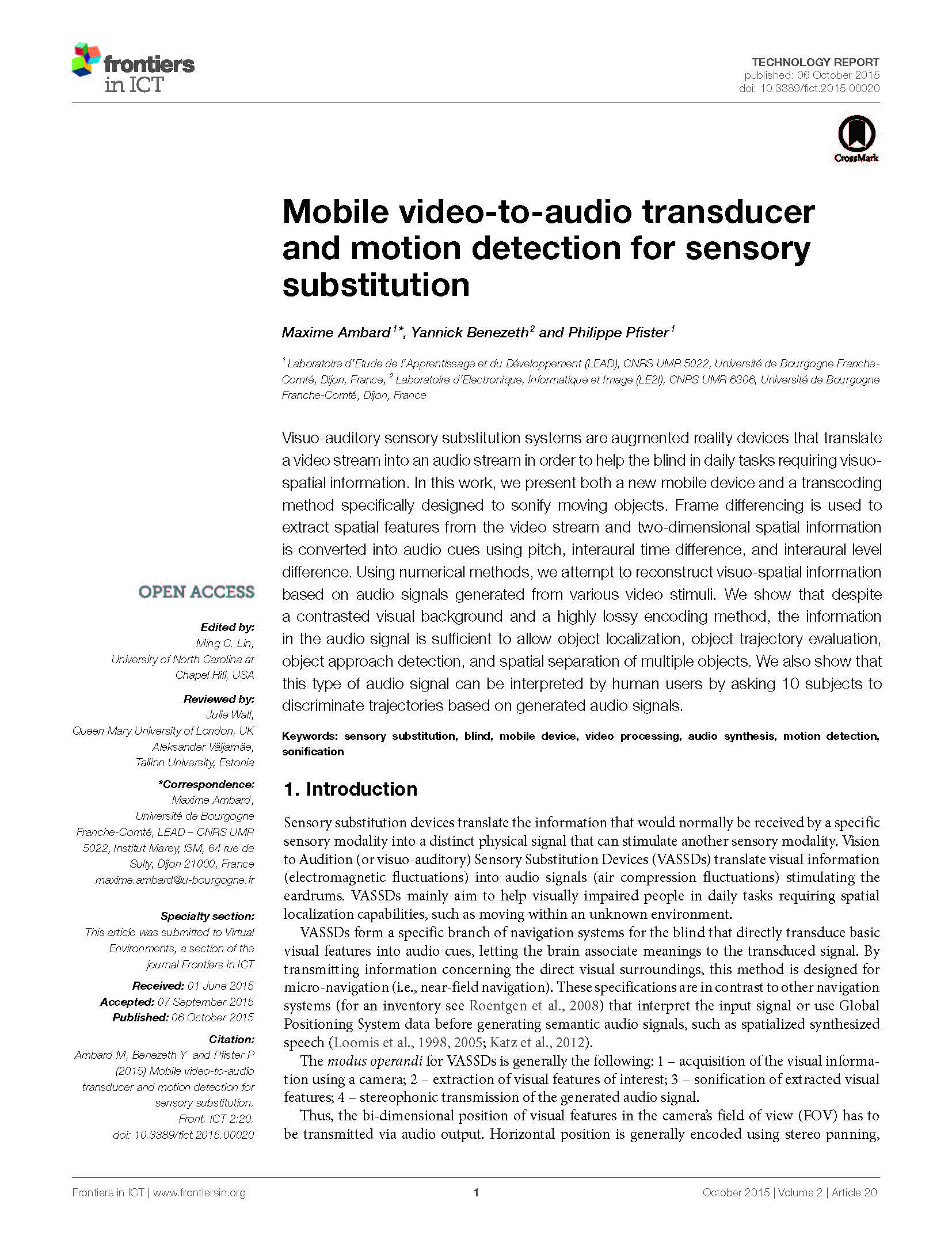Visuo-auditory sensory substitution systems are augmented reality devices that translate a video stream into an audio stream in order to help the blind in daily tasks requiring visuo-spatial information. In this work, we present both a new mobile device and a transcoding method specifically designed to sonify moving objects. Frame differencing is used to extract spatial features from the video stream and two-dimensional spatial information is converted into audio cues using pitch, interaural time difference, and interaural level difference. Using numerical methods, we attempt to reconstruct visuo-spatial information based on audio signals generated from various video stimuli. We show that despite a contrasted visual background and a highly lossy encoding method, the information in the audio signal is sufficient to allow object localization, object trajectory evaluation, object approach detection, and spatial separation of multiple objects. We also show that this type of audio signal can be interpreted by human users by asking 10 subjects to discriminate trajectories based on generated audio signals.
Mobile video-to-audio transducer and motion detection for sensory substitution
